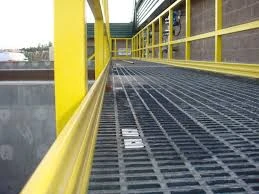
-
 Afrikaans
Afrikaans -
 Albanian
Albanian -
 Amharic
Amharic -
 Arabic
Arabic -
 Armenian
Armenian -
 Azerbaijani
Azerbaijani -
 Basque
Basque -
 Belarusian
Belarusian -
 Bengali
Bengali -
 Bosnian
Bosnian -
 Bulgarian
Bulgarian -
 Catalan
Catalan -
 Cebuano
Cebuano -
 China
China -
 China (Taiwan)
China (Taiwan) -
 Corsican
Corsican -
 Croatian
Croatian -
 Czech
Czech -
 Danish
Danish -
 Dutch
Dutch -
 English
English -
 Esperanto
Esperanto -
 Estonian
Estonian -
 Finnish
Finnish -
 French
French -
 Frisian
Frisian -
 Galician
Galician -
 Georgian
Georgian -
 German
German -
 Greek
Greek -
 Gujarati
Gujarati -
 Haitian Creole
Haitian Creole -
 hausa
hausa -
 hawaiian
hawaiian -
 Hebrew
Hebrew -
 Hindi
Hindi -
 Miao
Miao -
 Hungarian
Hungarian -
 Icelandic
Icelandic -
 igbo
igbo -
 Indonesian
Indonesian -
 irish
irish -
 Italian
Italian -
 Japanese
Japanese -
 Javanese
Javanese -
 Kannada
Kannada -
 kazakh
kazakh -
 Khmer
Khmer -
 Rwandese
Rwandese -
 Korean
Korean -
 Kurdish
Kurdish -
 Kyrgyz
Kyrgyz -
 Lao
Lao -
 Latin
Latin -
 Latvian
Latvian -
 Lithuanian
Lithuanian -
 Luxembourgish
Luxembourgish -
 Macedonian
Macedonian -
 Malgashi
Malgashi -
 Malay
Malay -
 Malayalam
Malayalam -
 Maltese
Maltese -
 Maori
Maori -
 Marathi
Marathi -
 Mongolian
Mongolian -
 Myanmar
Myanmar -
 Nepali
Nepali -
 Norwegian
Norwegian -
 Norwegian
Norwegian -
 Occitan
Occitan -
 Pashto
Pashto -
 Persian
Persian -
 Polish
Polish -
 Portuguese
Portuguese -
 Punjabi
Punjabi -
 Romanian
Romanian -
 Russian
Russian -
 Samoan
Samoan -
 Scottish Gaelic
Scottish Gaelic -
 Serbian
Serbian -
 Sesotho
Sesotho -
 Shona
Shona -
 Sindhi
Sindhi -
 Sinhala
Sinhala -
 Slovak
Slovak -
 Slovenian
Slovenian -
 Somali
Somali -
 Spanish
Spanish -
 Sundanese
Sundanese -
 Swahili
Swahili -
 Swedish
Swedish -
 Tagalog
Tagalog -
 Tajik
Tajik -
 Tamil
Tamil -
 Tatar
Tatar -
 Telugu
Telugu -
 Thai
Thai -
 Turkish
Turkish -
 Turkmen
Turkmen -
 Ukrainian
Ukrainian -
 Urdu
Urdu -
 Uighur
Uighur -
 Uzbek
Uzbek -
 Vietnamese
Vietnamese -
 Welsh
Welsh -
 Bantu
Bantu -
 Yiddish
Yiddish -
 Yoruba
Yoruba -
 Zulu
Zulu
Exploring the Benefits and Applications of FRP Chemical Products in Modern Industries
The Significance of FRP Chemical Products in Modern Industry
Fiber Reinforced Polymer (FRP) chemical products have become increasingly essential across various industrial sectors due to their unique properties and versatility. Comprising a matrix of polymer resin reinforced with fibers, usually glass, carbon, or aramid, FRP materials offer a combination of high strength, low weight, and excellent resistance to chemicals and environmental factors. This unique blend of characteristics makes them invaluable in many applications, ranging from construction to aerospace.
Versatile Applications
The widespread use of FRP chemical products can be attributed to their adaptability and performance in various conditions. In the construction industry, for instance, FRP composites are utilized for reinforcing concrete structures, providing enhanced durability and reducing maintenance costs. Their lightweight nature allows for easier handling and installation, significantly speeding up construction timelines.
In the aerospace sector, FRP materials are used in the manufacturing of aircraft components. The high strength-to-weight ratio of these composites contributes to fuel efficiency, making air travel more sustainable. Additionally, the excellent fatigue resistance of FRP materials ensures the longevity of aircraft components, thereby enhancing safety.
Another notable application for FRP chemical products is in the automotive industry, where they are increasingly being employed to manufacture lightweight parts that improve vehicle performance and fuel economy. As manufacturers respond to the growing demand for environmentally friendly vehicles, the role of FRP materials will likely expand further.
Chemical Resistance
frp chemical product

One of the most significant advantages of FRP chemical products is their exceptional resistance to a wide range of chemicals. This property makes them ideal for use in chemical processing industries, where they can be employed in tanks, pipes, and other equipment that must withstand harsh environments. For example, FRP-lined tanks are extensively used to store corrosive substances, eliminating the risk of leaks and chemical reactions that can lead to costly damages and environmental hazards.
In addition to their resistance to corrosive chemicals, FRP products can also withstand extreme temperatures and harsh weather conditions. This makes them suitable for outdoor applications, such as in the construction of bridges and transportation infrastructure, where they must endure the elements over time.
Sustainability and Environmental Benefits
In an era increasingly focused on sustainability, FRP chemical products also stand out due to their potential to reduce overall environmental impact. The lightweight nature of these materials can lead to lower energy consumption in applications such as transport and logistics. Moreover, the durability and resistance of FRP products mean they have a longer lifespan compared to traditional materials, resulting in less frequent replacements and reduced waste.
Manufacturers are also exploring the potential for recycling FRP materials, creating a closed-loop system that minimizes environmental footprints. While challenges remain in terms of recycling processes due to the composite nature of FRPs, ongoing research is focused on developing methods to reclaim and repurpose these materials effectively.
Conclusion
The importance of FRP chemical products cannot be overstated. Their unique characteristics make them suitable for a myriad of applications across various industries, providing solutions that enhance performance and safety while reducing environmental impact. As technology continues to advance and demand for sustainable materials grows, the role of FRP in modern industrial applications is likely to expand further. Businesses that embrace FRP chemical products now will be well-positioned to lead in a competitive and environmentally conscious marketplace. The future of materials science lies in the innovative application of composites like FRP, promising to shape the industries of tomorrow.
Latest news
-
High-Quality Fiberglass Car Bodies Durable GRP Car & Boat Body SolutionsNewsJul.08,2025
-
High-Quality Fiberglass Dual Lamination Product Manufacturer Durable FRP & GRP Dual Lamination SolutionsNewsJul.08,2025
-
Rectangular Tank with Dimensions for GRP Calculation Custom Fiberglass GRP Rectangular TanksNewsJul.07,2025
-
High-Quality Fiberglass Weir Custom FRP Weir & Fiberglass Tanks ManufacturerNewsJul.07,2025
-
CPVC FRP Pipe A Reliable Choice for Industrial Applications High Strength & Corrosion ResistanceNewsJul.07,2025
-
Fiberglass Scrubber for Effective Cleaning and Stain Removal – Superior Performance in Various ApplicationsNewsJul.06,2025









